Information Worker Has a Lot to Learn But Never Enough Time
“Learning is a new form of labor.”
– Shoshana Zuboff
Information worker’s chaotic desktop fills up with problems which don’t have a simple solution. There’s just a huge amount of information: e-mails, meetings, tweets, opinions, text, images, videos, good news and bad news, strategies and definitions of policies. And we shouldn’t forget the Excel-tables. Using your best analysis skills and creativity you should be able to give birth to something new and innovative from this cornucopia of sources. That is, you should find a solution.
It’s impossible to separate learning from work in today’s world
It’s impossible to separate learning from work in today’s world. Studying isn’t anymore a strictly defined part of life, which precedes working life. Especially in information work, executing tasks successfully requires constant learning and adoption of new things, because the problems at hand seldom are similar in content or even by nature. For example, consultant’s every project assignment is different, economist has to keep track of the changes affecting economy and development manager has to know the latest technology and business trends.
“I’m in a hurry, I don’t have time for that.” Does it sound familiar? One of the reasons why we are not actively developing our own competencies even if we want to, is that we simply don’t have time for it. We spend our working hours and maybe even a bit of our spare time doing routine tasks which leave us no time for learning, although the manager has given us permission to use working hours for studying during the mandatory development discussion. “We’re really investing in our employees competencies. We’re expecting you to actively find ways to develop yourself, even during the working hours.” When your calendar is full of client and in-house meetings and your ToDo-list is longer than an old man’s beard, developing your own skills and competencies is not the first thing to spring to mind. How to find time for learning when you don’t have any time left?
In network society, knowledge is fragmented and the production of knowledge scattered. The efficient use of knowledge requires close collaboration with different experts and professionals. The amount of data is expected to tenfold by 2020 to a staggering 44 billion gigabytes. Analysis of this vast information mass can’t be done merely by one Analyst, not even if you’re a Senior Analyst. Knowledge doesn’t reside just in one person’s head, rather knowledge is being made in interaction with others. On the other hand, the competition on labour markets is fierce and you have to be proud of your own skills and competencies and try to stand out from the crowd. How to build productive collaboration but still stand out from others?
What about motivation? Anu wrote in our previous blog post that motivation plays a big role in learning. Learning results of a motivated learner are noticeably better than of learners’ who consider learning as just a necessity. Daniel Pink proves in his widely read (yet very little understood) book Drive: The Surprising Truth About Motivation, that money and rewards boost better performance only in simple, performance-based work, whereas using such external motivators in tasks that require problem solving skills and creativity may even deteriorate performance levels. Information worker’s motivation for both work and learning can be found somewhere else: namely in Purpose, Mastery and Autonomy.
Time management, collaboration, motivation. How can you use these three elements to enhance learning in your organization? Here are some tips:
- Make self-learning as easy as possible, for example short videos work well as learning material
- Guide the learner and ensure the learning process is ascending and goal-directed
- Let the learner monitor his own learning progress, so that he remains motivated
- Give the learner instant feedback
- It’s more fun to learn together and it also increases learning motivation and results
- Make learning possible wherever and whenever by offering learning materials for mobile phones and tablets
These remarks have lead to the development of our own gamified Habit for eLearning concept. What do you think? How can we make it easier to develop our own competencies in the workplace?
